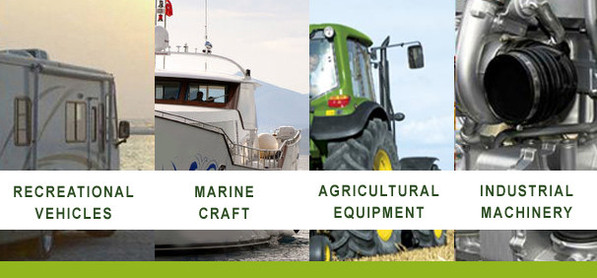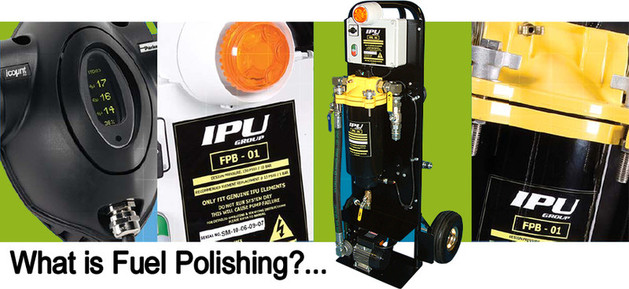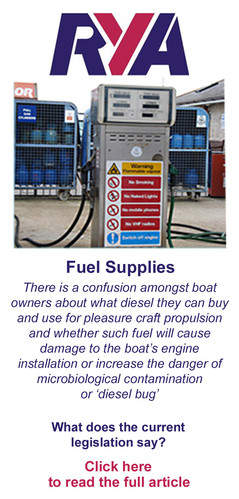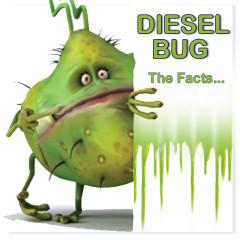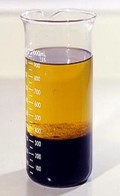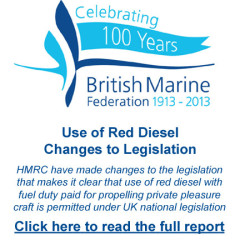
A Professional & cost effective Fuel Polishing service...
How good is the quality of the fuel being used in your equipment?
If you have an inboard, diesel engine on your boat or if you are hiring out or operating generators, pumps or plant, can you be sure of the condition of the fuel going into your equipment? Are you potentially harbouring a problem with contaminated fuel? Are you storing fuel which could become tainted?
Poor fuel storage, bad fuel transfer and housekeeping practices, or simple human error, can easily result in diesel bug, water, sand, grit, rust etc in fuel, all of which can harm your engine. If poor quality fuel is going into your boats, tractors, generators, pumps or excavators, the engines that power them could be at risk and you could end up with expensive repair bills as well as downtime.
By regularly polishing your fuel you maintain its quality by removing the water and particles that are harmful to engines and fuel systems.
A dependable company is worth its weight in gold. C.P.Fuel Polishing is sure to be able to meet all your fuel cleaning objectives at a very reasonable price. With coverage extending across the whole of the South West of the UK, you'll also be able to count on the best possible service and advice that's always balanced, professional and friendly.
Diesel Defence Fuel Polishing
Diesel Defence fuel polishing systems are designed to preserve the quality of stored diesel fuel for critical applications such as standby generators, fire pumps. Operating independently through a pre-set in-built timer, they constantly re-circulate fuel through a series of filtration stages removing water and solid particle contamination. They reduce fuel degradation, engine and fuel system wear and help prevent corrosion of fuel tanks. Most importantly they reduce the risk of unpredictable failure of critical diesel driven equipment.
To meet today’s demanding performance, emissions and fuel economy requirements, the latest generation of diesel engines use advanced electronic fuel injection systems with injection pressures in excess of 35000 psi - 10 years ago injection pressures rarely exceeded 3000psi. With injector nozzle opening as small as 2-3 micron, they are designed to deliver a precise quantity of fuel, in a well defined spray pattern with an injection cycle lasting around .005 second. To achieve this reliably, clean fuel is vital.Engine and vehicle manufacturing companies acknowledge the damage that contaminated fuel can cause to their engines. However any failures are generally held to be the responsibility of the user and warranty claims associated with dirty fuel will be rejected. Here is some of their advice on keeping fuel clean:
Cummins
With regard to the fuel cleanliness requirements of modern HPCR systems:
Contamination levels vary widely as a function of location, time and fuel handling practices. While the Worldwide Fuel Charter establishes a target for supply fuel cleanliness, there is no assurance that the 18/16/13 target will be maintained. Filtration is only one part of a total contamination control program. Anytime fuel is stored, pumped or transferred, there is a risk of introducing, creating, or dislodging contamination into the fuel. Effective programs address fuel source, storage and handling issues. Good contamination control practices include, but are not limited to:
- Consistently obtaining in-spec fuel from reliable, dependable sources,
- The use of filters and fuel water separators for storage and day tanks,
- Routine tank cleaning,
- Steps to ensure that biological growth does not get started,
- Clean fuel transfer operations, and
- Appropriate on-board filtration and water removal,
Often, raising the awareness of service personnel and operators with regards to contamination control is one of the most effective contamination control measures that can be taken.
Quoted from the Cummins Inc white paper “Filtration Solutions for High Pressure Common Rail Fuel Systems”
Caterpillar
On the consequences of water and solid contaminants in diesel fuel and their suggested solutions:
WATER IN FUEL
An excessive amount of latent water in the fuel is a key cause of injector failure. Water has inadequate film strength to prevent metal-to-metal contact between the plunger and the barrel, resulting in plunger scuffing or seizure. Water can be effectively removed by the use and regular maintenance of a water separator or bulk fuel filter/water coalescer. Removal of latent water is essential to prevent scuffing with the upcoming injection pressure increases and subsequent hydraulic loading of internal injector parts.
Solution: Proper maintenance of fuel tank drains, water separators and/or use of a bulk fuel filter/ coalescer.
ABRASIVE CONTAMINANTS
Increased injection pressure acting on the same level as abrasive contaminants in the fuel results in accelerated injector abrasive wear. This abrasive wear cannot be eliminated through the use of improved materials and processes. Abrasive wear can only be reduced be removing abrasives from the fuel.
Solution: Single or series High Efficiency fuel filters and/or bulk fuel filter/water coalescer.
Quoted from ‘Caterpillar Fuel Systems (Fourth Edition)’
Contact us
07716 851901
News
Diesel Bug is the term used to describe the bacteria and fungi that can grow within a diesel fuel tank.
It doesn’t grow in every fuel tank – many fuel users may never encounter it - but if conditions are right and it does get established, it can be a very serious problem.
To learn more about diesel bug, how it can occur, the damage it can cause, as well as preventative measures, please visit our FAQ section.
